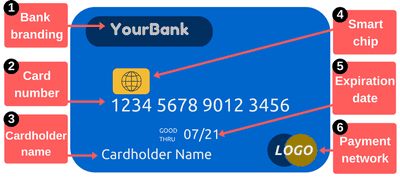It's encapsulated in this thread. Unlike most of my threads it has a happy ending though !
First, a whole load of unsuspecting patients have PCI.
Let's get together and ...
google.co.uk/url?sa=t&sourc…
"I had a guy with 3 vessel thrombosis in cardiogenic shock, going into asystole as he was put on the table, but we still saved him!"
So we resolve to report out combined outcomes.
"Don't make me look bad though?"
"Nor me!"
"Wouldn't dream of it, chaps. Plenty of other things to talk about."
Eventually somebody actually does some work and collates the data.
"I've found something very highly significant. P is less than almost zero."
"Awesome! Let's publish it! Remember to put my middle initial."
Awesome.
Really easy to understand. Go for it!"
"By the way, which are we saying goes up, the white things compared to the black things, or are we saying they are all going up from left to right?"
"And that's not all, both of them are statistically significant. p value is almost less than zero!!!"
A. Cumulative number of men and women trained in intervention, year by year.
B. Survival (white) and event free survival (black) at 10 years, stratified by FFR (x axis).
C. Number of things we put in coronary arteries.
We have diagnosed that we are putting more and more things into people's coronary arteries.
The white and black are two types of thing.
Patients having OCT had the most stent length.
Patients having IVUS were in the middle.
Patients having neither had the least stent length.
A. seeing stuff up close with IVUS and especially OCT, makes you want to put more metal in?
B. people with more badder disease get more stents and more pondering with IVUS/OCT?
C. Some docs just like IVUS, OCT and lengthy stents?
You thought I mocked IVUS, OCT, FFR, iFR, AFR, BFR, CFR, DFR and EFR just for the sheer fun of needling the hell out of pompous pronouncements?
Nope.
Just DOING this test on cath lqb patients reduces long term cardiovascular mortality by five fold.
I didn't think the Lancet would publish our rude reply to your amusing ORBITA letter, so I had to have something else as revenge. I therefore decided to edit out the data from the London dataset that would have allowed you to patent this genius test.)
francis Fecundity Radix
fFR
Cheaper than OCT
Less wheezy than FFR
Less invasive the iFR
A wonder of the 21st century.
f F R
Come and get it.
80% less MACE.
if you don't use it you are backward.
"We have convincingly shown, and published under expert peer review in the New England Journal of Mistakes," thunders the shiny handout from our reps.
This is the new gold standard.
blah blah blah."
I can tell the secret story now. I noticed that whenever we do a pregnancy test on a patient coming into the Cath lab, THAT PATIENT DOESN'T DIE!
Sorry Simon I didn't let you have that for the Pan London paper, but money is money after all...
Of course some do die because of cancer, or because somebody threw a javelin through their chest etc, but it is rarely heart disease.
A. We gotta get it in our lab
B. We already have it but should now do it in everyone.
C. Hey, this Francis Fecundity Radix is bullshit.*
(* if you vote for this I will sue you)
Choose one answer only
But why did this tweetorial class see though me so easily ?
For anyone else:
We do pregnancy tests before Cath lab in women rather than men, and in those of child bearing age rather than older women.
(Of course if we pay doctors to do the test, we could probably keep the game going for a few years and make the odd billion...)
Do they do it on barn door 99% lesions?
Hopefully not.
Hopefully they do it when they are not sure what's going on because there is nothing shockingly tight.
Propensity matching, I.e. adjusting for risk factor differences, is all well and good, if you have all the factors that matter.
But do we?
Ask yourself this.
But we do know for 100% sure it was not based solely on the things that were typed in the database.
.
sic transit gloria mundi
.
.
It clearly wasn't my Pregancy Testing venture.
So what do you think is the saving grace in this cataclysm of cluelessness?
Why have I only been quoting from the Abstract? And not the Paper?
This tweetorial, like most of my tweetorials, is for the benefit of fellows.
It does labour a very simple point, but one that people don't tell you when you are asking you to "analyse a big database we've got.
Biggest in the city/country/world"
He isn't going to be sweating over the system crash when you finally get it all together and press "calculate P value".
All he is going to be there for is to ensure you've spelt his middle name right.
It's a big investment for YOU.
So for him, it doesn't matter whether it is a good idea or not.
It only matters to you. It's your life. Think about it.
This tweetorial provides you with the questions to ask and the means to say no.
If that is the case you are all clear.
Go ahead.
Propense away!
Match your little heart out!
"Sorry I've just become pregnant and I am scared of radiation from the computer."
"I'm a Zoroastrian and so I obviously can't help you here."
Later get a family member to email him to say you have unfortunately died.
Call the police.

















